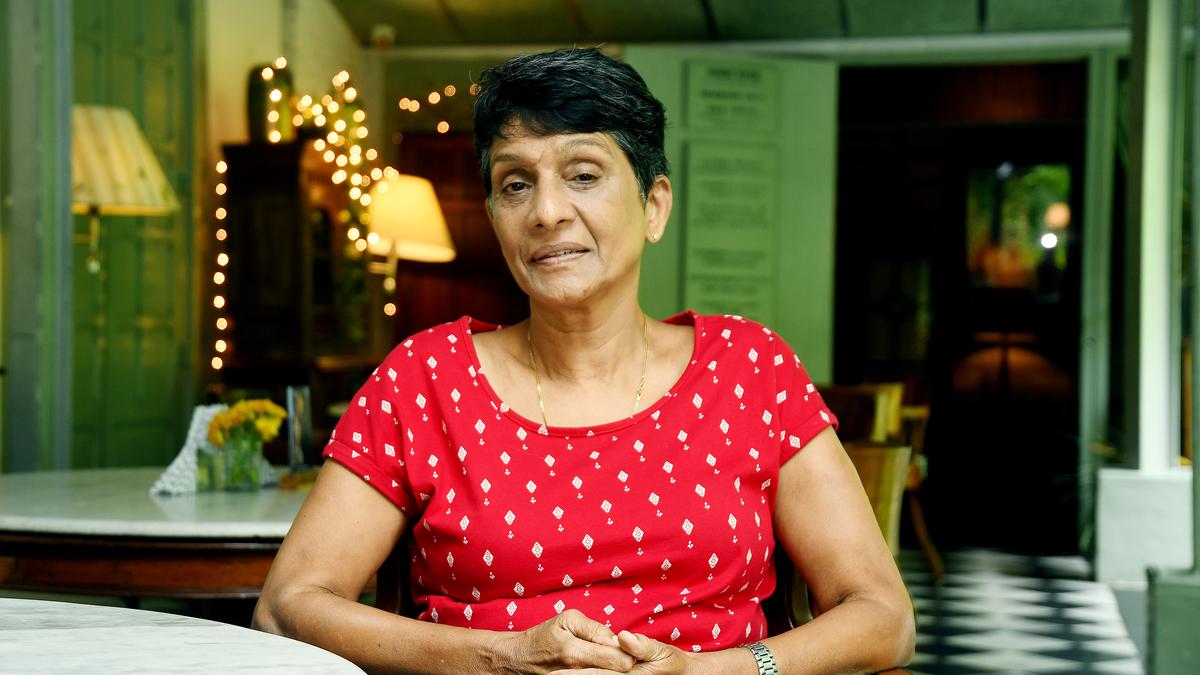
Madras Day | Letika Saran reminisces about her college years at WCC, Chennai’s heritage architecture and her experiences as city Police Commissioner
The Hindu
Letika Saran, first woman DGP of Tamil Nadu, shares memories of Madras
Letika Saran, IPS (retired) is comfortably ensconced in a chair at Amethyst’s Wild Garden Café. The girl who was raised in a tea garden in Munnar and topped her career path as the first woman to be appointed Chief of the Tamil Nadu Police in 2010, seems quite at home in the sage green veranda of the cafe, crowded with palms and heliconias. The feeling of time preserved hangs heavy in the air as Letika looks back on the Madras of yore.
“I joined Women’s Christian College (WCC) in 1968 to pursue Mathematics. College Road was very quiet, with a lovely garden house at the corner of Haddows Road, where a multi-national bank now stands, and about two-and-half buses plying. Life was pretty laid back – the concept of a career woman was still not an accepted idea yet. The Cooum clean-up had just been launched and hostellers used to access the back gate to walk across a dry river bed to Hansa’s on Spur Tank Road for cutlets,” she laughs, adding, “We hired cycles and pedalled to the beach, to the Drive-in, to Buhari’s where we indulged in Ceylon egg parotta, samosas and jam buns and then onto Jaffer’s for ice cream. If we were broke, there was Harrison’s bakery, and if there was a celebration it had to be Chung-King. Higginbothams and Kennedy book shops were the other hangouts. And my only indulgence fashion-wise was Bellino’s in Purasaiwalkam for footwear.”
Letika was keen on pursuing a career in astronomy but “my father didn’t see it as too promising a path. He egged me on to take the UPSC exams”. Letika completed a Master’s in Psychology and joined the Indian Police Service in 1976. “IPS seemed the obvious choice. I was fascinated with the skeletal police force at Munnar and grew up reading Agatha Christie and Alistair MacLean. The whole idea of investigating seemed fascinating to me, the excitement when a case comes together; that continued right until the day I hung up my boots,” she says.
It was in the early 1980s that Letika truly discovered Madras and its gracious buildings. “I returned to the Police Training College in Ashok Nagar in 1977. It was a three-month stint, mostly calling on people, and I didn’t get to know the city much then. When I became Deputy Commissioner, Headquarters, there were changes. The old garden houses were disappearing, and Shankar Nethralaya was coming up across WCC. A building that I worked in later was the palatial, teak-beamed Government House inside Omandurar Estate. Other iconic buildings were the Grange, home to chiefs of the force, and the salmon-pink painted, British-era Ponni that had steps leading to the Adyar river, a long drive, French windows that opened to a lawn and a bandstand. Sadly, some of these don’t exist,” says Letika.
When she became the first woman to head a metropolitan police force in India, Letika went on to discover North Madras, a part of Chennai that she was not familiar with until then. She was appointed the 36th Commissioner of Police, Greater Chennai, in 2006. “I continued to learn more about the city during the election process. By then more women had entered the force, it had become more modernised, beat constables on cycles were replaced by beat officers on bikes. Now you have drones and the CCTV cameras. You can replicate but never replace human intelligence,” she says, sipping a cup of English breakfast tea, while slicing a sandwich.
Does she still practise kalaripayuttu, I ask. “It’s yoga now,” she laughs. “In the 1970s when Bruce Lee was the most important man in everyone’s lives, there was an inclination towards karate, thanks to Karate Mani who made it popular here. Then, at the police training academy it was unarmed combat. Later, at YMCA and at Spaces, I learnt kalari under Binoy and Shaji John. Our uniform allowance was given once in seven years. And although I was mostly in a plainclothes job, I couldn’t afford to grow out of it. If you are in uniform, you cannot be out of shape; you better be the smartest thing on earth.”













